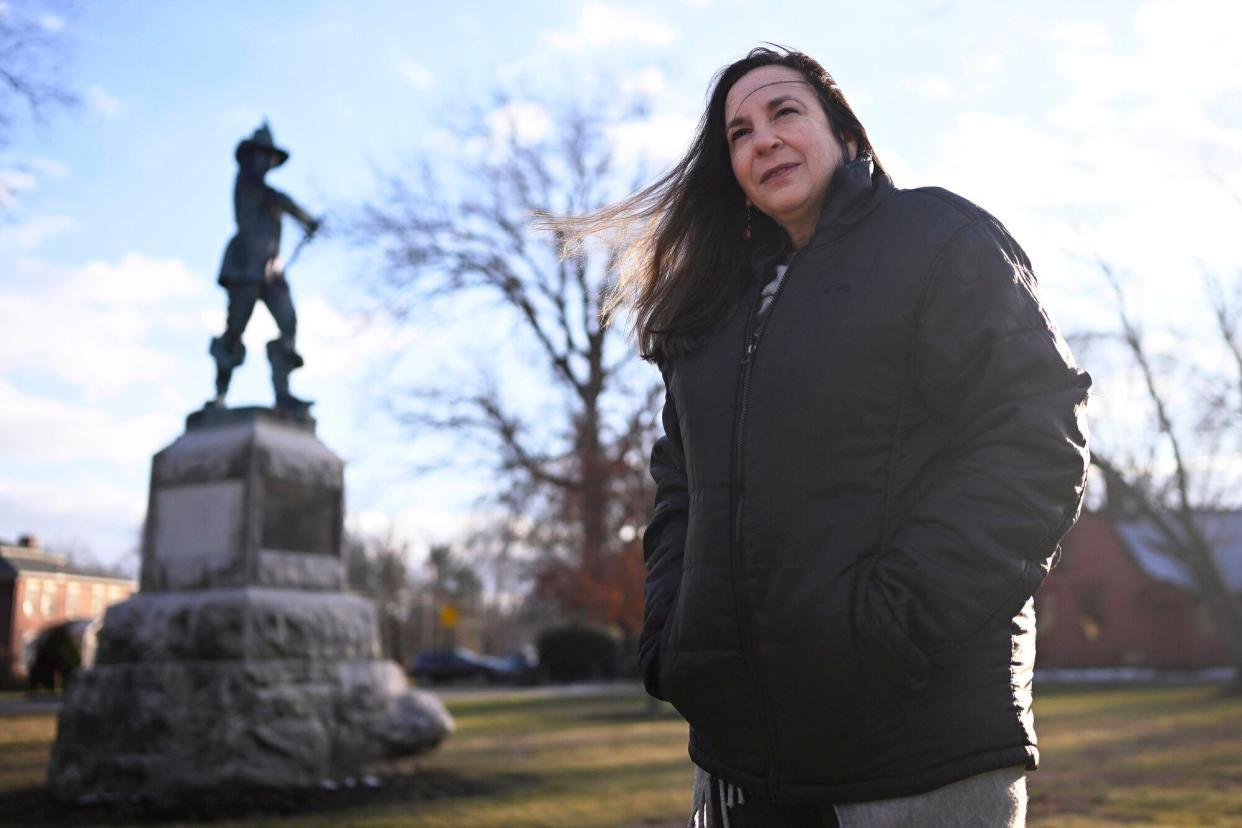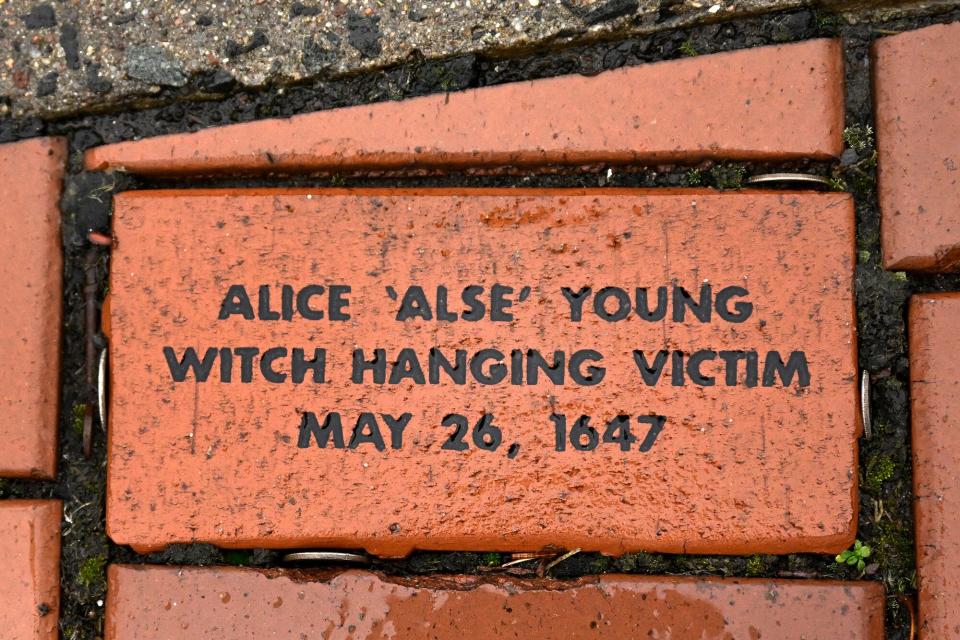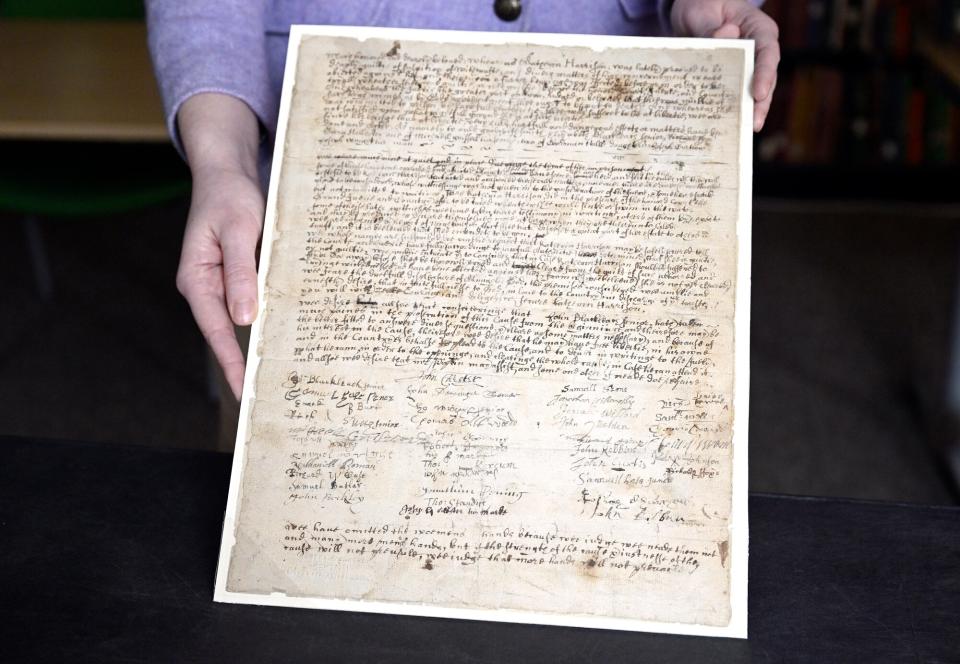Connecticut 'Witches' Could Be Exonerated 375 Years After Going on Trial

Jessica Hill/AP Photo
Innocent "witches" slain in Connecticut nearly 400 years ago may be about to have their names cleared.
In 1647, Alyse Young became the first person in the American colonies to be recorded as executed on charges of witchcraft. She was hanged, as was detailed by the Windsor town clerk in a diary entry. Over the next 15 years, 11 more women were executed by the Connecticut colony for witchcraft.
In recent years, Connecticut government officials and historians have made efforts to clear the names of those falsely accused of witchcraft — cases like Mary Johnson, who was tortured by a local minister until she confessed to being a witch, and was hanged after giving birth to a man's child as an unmarried woman, according to the Associated Press.
The witch trials — which many commonly associate with the Salem Witch Trials in Massachusetts in the 1690s — were rooted in laws that made consorting with the Devil punishable by death in all New England colonies. People would often be tried as a witch over disagreements or natural occurrences — like Grace Sherwood, who was pardoned in 2006, after being imprisoned in 1706 when neighbors blamed her for a bad harvest and storms, reported NBC News.
RELATED: Last Salem 'Witch' Pardoned 329 Years After She Was Sentenced to Death

Jessica Hill/AP Photo
Now, over 375 years later, local historians and descendants of the Connecticut witches and their accusers hope lawmakers will finally deliver them all a posthumous exoneration.
"They're talking about how this has followed their families from generation to generation and that they would love for someone just to say, 'Hey, this was wrong,'" Rep. Jane Garibay told AP. "And to me, that's an easy thing to do if it gives people peace."
She has now proposed an exoneration bill after receiving letters from relatives of accused witches.
"[One constituent's] wish was that if there was a way to give some kind of a closure to the families, that would be one way for him to be able to say that he has done his share, even though his ancestors may have not done the right thing," Anwar added about the feelings of those families associated with the even darker history of having punished the women.
"It's important to right the wrongs of the past so we learn from them and move on and not repeat those mistakes," Joshua Hutchinson, who traced himself back to accused witches in Salem, added to AP.
The @MA_Senate has PASSED legislation to clear the name of “Last Witch” Elizabeth Johnson Jr. This wouldn’t have been possible without @NAMiddle teacher Carrie LaPierre and her amazing civics class, whose hard work was essential to its filing. #mapoli https://t.co/QPKHCYznrR pic.twitter.com/VbmwruR7yR
— State Senator Diana DiZoglio (@SenatorDiZoglio) May 26, 2022
If the exonerations arrive, they will be long overdue. Even for those accused in Salem, arguably the most well-known American witch trials, justice has only recently been served.
In May 2022, Massachusetts lawmakers exonerated the last of the Salem "witches," Elizabeth Johnson Jr., who was sentenced to death in 1693. Though she was never actually executed, her pardon over 300 years later officially cleared her name.
In her case, as she was unmarried and never had children, she had no descendants to act on her behalf. So Johnson's case was instead taken up by an eighth-grade civics class at North Andover Middle School in Massachusetts.
State Senator Diana DiZoglio, who raised and passed the motion, credited the students for taking up the cause.
"The @MA_Senate has PASSED legislation to clear the name of "Last Witch" Elizabeth Johnson Jr.," DiZoglio wrote on Twitter at the time. "This wouldn't have been possible without @NAMiddle teacher Carrie LaPierre and her amazing civics class, whose hard work was essential to its filing."
RELATED: Vanessa Hudgens Announces Documentary About Her Journey with Witchcraft: 'A Coming-of-Age Story'

Jessica Hill/AP Photo
Never miss a story — sign up for PEOPLE's free daily newsletter to stay up-to-date on the best of what PEOPLE has to offer, from juicy celebrity news to compelling human interest stories.
In a statement to AP, North Andover teacher LaPierre — whose students championed the legislation — praised the youngsters for taking on "the long-overlooked issue of justice for this wrongly convicted woman."
"Passing this legislation will be incredibly impactful on their understanding of how important it is to stand up for people who cannot advocate for themselves and how strong of a voice they actually have," she said to the outlet.
"Elizabeth's story and struggle continue to greatly resonate today," DiZoglio said to CBS. "While we've come a long way since the horrors of the witch trials, women today still all too often find their rights challenged and concerns dismissed."

